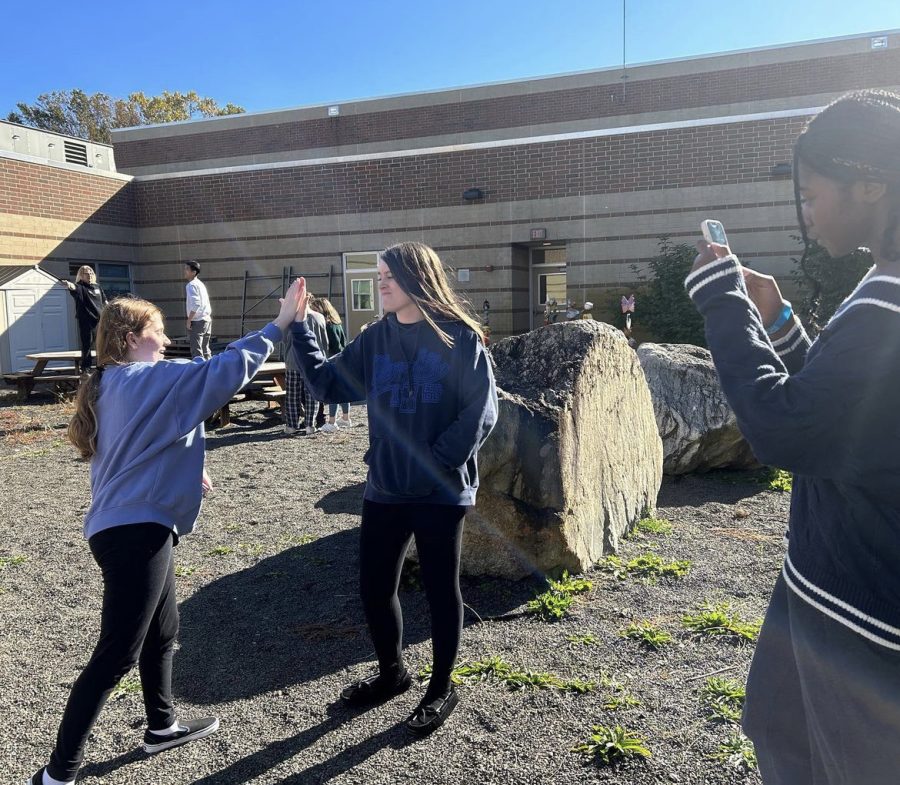ByTimothy Cho
Editor-in-Chief
CommonApp, the college and university application most institutions accept is an integral part for graduating seniors. However, for some, CommonApp is also cryptic, complicated and tedious, a process too complex to bother starting. Unfortunately, for them, CommonApp is an essential process for students hoping to attend college or university.
The first step of CommonApp is to register and make a profile, providing details about a student’s basic information, academics, activities, interests, test scores (scores from the SAT, SAT Subject Tests, ACT and AP Exams, which are the scores colleges and universities see when reviewing a student’s application), family background and of course, the personal essay.
Naviance, another program aimed at assisting students prepare to apply to college and university, is used to, “send supporting materials, such as transcripts, schedules, letters of recommendations and school report forms, to the colleges students apply,” Neshaminy Guidance Counselors Patience Burton and Casey Rodgers said.
Once Naviance has been connected with CommonApp, students’ applications are linked and able to be effectively coordinated between students, teachers and Guidance Counselors.
For some, this first step is the hardest, as bringing themselves to begin the college and university application process may be the biggest obstacle in this process. Burton and Rodgers suggest that students, “take their time and thoroughly review all information provided in the CommonApp,” in order to ensure the most accurate details are provided.
Brian Thomas, Neshaminy Class of 2015 and Drexel University Class of 2020, also suggests that, “seniors who haven’t completed anything in relation to CommonApp (the procrastinators), just get it done and out of the way as soon as possible. You’ll be grateful later.”
The personal essay is arguably the most important aspect of the CommonApp; while students’ GPA, grades, activities, interests and test scores define their academic rigor, the personal essay reveals their personality, characteristics and essentially, who they are not as students, but as people. “Choose a prompt that complements who you are as a student, especially one that demonstrates some of the things you’re passionate about…make sure you provide unique details to set yourself apart from those that choose to write the same essay option,” Thomas said.
Furthermore, since the personal essay reveals an applicant’s identity and personality, students are suggested to spend as much time as possible in creating the essay that brings out their best. Senior Natalia Bastida, who has already completed her CommonApp, thought the essay was the most time-consuming aspect; she recommends applying seniors to, “Do a bit of it every day so it’s not overwhelming, and to really put some time into it.”
Some colleges and universities have a Writing Supplement, which may include more specific questions and additional essays to complete. In this case, “these should be completed IN ADDITION to the required essay in CommonApp.
Sometimes the supplemental materials will be marked as ‘optional’ but the NHS Guidance Department STRONGLY advises you to complete them,” Burton and Rodgers said.
The essay prompts for the 2015-2016 year are:
1. Some students have a background, identity, interest, or talent that is so meaningful they believe their application would be incomplete without it. If this sounds like you, then please share your story.
2. The lessons we take from failure can be fundamental to later success. Recount an incident or time when you experienced failure. How did it affect you, and what did you learn from the experience?
3. Reflect on a time when you challenged a belief or idea. What prompted you to act? Would you make the same decision again?
4. Describe a problem you’ve solved or a problem you’d like to solve. It can be an intellectual challenge, a research query, an ethical dilemma-anything that is of personal importance, no matter the scale. Explain its significance to you and what steps you took or could be taken to identify a solution.
5. Discuss an accomplishment or event, formal or informal that marked your transition from childhood to adulthood within your culture, community, or family.
Students are recommended to have their profile and personal essay ready as soon as possible. When students apply sooner, rather than later, “the sooner they hear back and, in some cases, the better their chances of being accepted,” Burton and Rodgers explained.
Once the profile and personal essay are complete, students add colleges and universities they wish to apply to under the “My Colleges” tab in CommonApp. Each college and university has their own separate application, most of which ask basic questions, mostly regarding general information, academics, activities, contacts and family information for applicants to answer.
Each college and university will have a Family Educational Rights and Privacy Act (FERPA) statement. FERPA grants students the right to read and view their Letters of Recommendation, but if the FERPA statement is signed in CommonApp, students acknowledge that they have given up their right to read Letters of Recommendation, thus promising that their application is an honest one and uncensored one.
Transcripts, on the other hand, are permanent records of a student’s high school career, composed of all courses taken and all grades received. Students may request transcripts from their Guidance Counselor.
Mid-year reports are just as they are named—reports of students’ first half of their senior year’s progress. After the second marking period, these are submitted through Naviance along with an updated GPA by Guidance Counselors.
Letters of Recommendation, however, requires student-adult coordination. Students must speak with teachers, Guidance Counselors and other adults about receiving a Letter of Recommendation, and if approved, these individuals require time to write a Letter for the student. Luckily, “Teachers and counselors are able to complete all the required forms n Naviance so they can be sent to the required schools,” Burton and Rodgers said.
Once all of these steps have been taken, seniors can finally relax—CommonApp is over. The profile is completed; personal essay perfected; colleges and universities added; supplementary requirements finished; subsequent information prepared and all that remains is to review and submit the application to each college and univeristy.
For most colleges and universities, the Early Application’s deadline is Nov. 1, while the Regular Decision’s is Jan. 1. Early Application allows applicants to apply earlier, placing themselves in a special pool of applicants recognized for their preparedness and eagerness to apply; these applicants will receive either an acceptance or rejection notice by January or February. Seniors that apply under the Regular Decision will receive a notification by March or April.
The most important thing to remember is to take the first step. The rest will soon follow; granted patience and persistence are exhibited by applicants. The sooner seniors begin CommonApp, the more time they allow tomorrow’s decisions to truly influence tomorrow’s opportunities.








